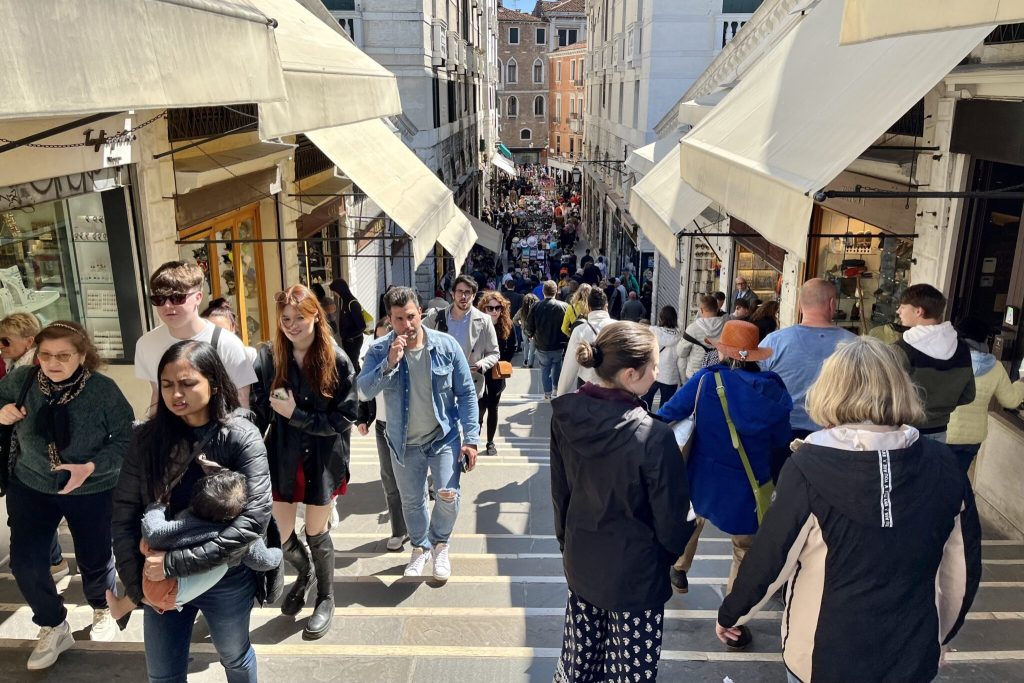Venice has introduced an entry fee for tourists, which has been considered a success by city officials. The fee is part of Venice’s broader strategy to preserve its beauty and local community, while also repositioning itself as a high-end destination rather than a cheap tourism capital. The fee was initially set at 5 euros on selected days but may increase to 10 euros and be applied more frequently in the future to generate revenue for city maintenance and restoration projects. While the income from the fee is not expected to be substantial this year, it is projected to increase in the coming years as the fee is expanded.
The entry fee is primarily targeted towards local and short-range tourists, such as those from nearby Italian regions. The fee aims to discourage overcrowding in Venice on specific days, leading to a more manageable and less stressful environment for the city and its residents. While there were some protests against the entry fee, Venice is striving to maintain its status as a living city rather than transforming into a theme park where visitors can do as they please. The city must balance the needs of tourists, commuters, and residents to create a harmonious environment for all.
Venice did not effectively manage tourism in the past, with a lack of strategic planning and management leading to issues of overcrowding and quality control. The impact of Covid-19 provided an opportunity for the city to reassess its approach to tourism, focusing on quality over quantity. Venice is now implementing measures to encourage quality tourism, such as reshaping hotel industries, introducing regulations for Airbnb and short-term rentals, and adjusting cruise ship itineraries to reduce congestion in the city center.
Venice’s strategy for managing tourism also includes promoting high-end events, meetings, and exhibitions to attract a more upscale demographic. By partnering with sectors such as fashion, jewelry, and art, Venice has rebranded itself as a city where the best events and experiences take place. Efforts are being made to boost the MICE (Meetings, Incentives, Conferences, and Exhibitions) sector in Venice, with a new convention center being planned on Lido Island. Through these initiatives, Venice aims to transform its identity from a cheap tourism capital to a city known for hosting prestigious events and attracting high-end visitors.
Despite concerns about potentially losing its UNESCO World Heritage Site label, Venice officials believe that being on a UNESCO blacklist would not significantly impact the city. While Venice values its UNESCO status, the organization does not provide the necessary resources or support needed to address the city’s challenges. Venice is committed to preserving its unique heritage and community through its own initiatives and efforts, regardless of its designation by UNESCO. The city is focused on managing tourism sustainably, ensuring the preservation of its beauty and cultural heritage for future generations.















